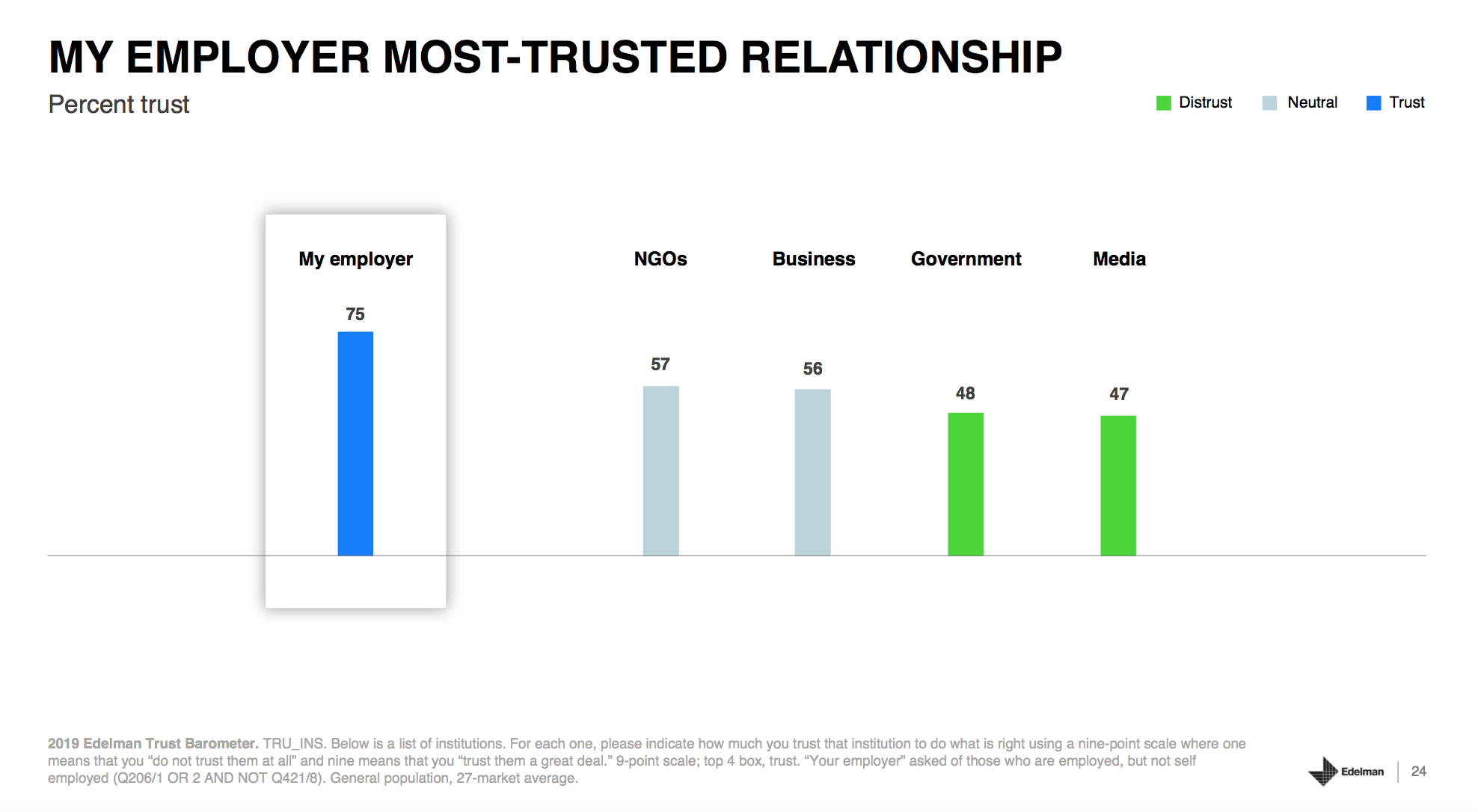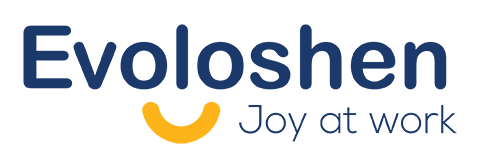“Trust has become the new currency in the global economy.” ~Stephen M. R. Covey, Smart Trust & Speed of Trust
It is within our human nature to want to trust others. I believe that the majority of people do want to see the good of humanity. However, we are living in very chaotic times right now. We see evidence of disruption and people being fed up, there is an uprising against governments, media, and establishments because of all the lies, corruption, and deception that are now coming to light. Our trust has tanked in these institutions so people are searching to find someplace to put that trust….and it’s moving over to companies, specifically employers.
The 2019 Edelman Trust Barometer shows that the highest category of trust is with their employer at 75%. And the levels for the government and media are the lowest in years to the point of being very distrusted.

Research from the 2018 Global Human Capital Trends by Deloitte shows the same trend and that it’s up to business leaders to step up and lead the way now.
“People today have less trust in their political and social institutions than they have in years; many expect business leaders to fill the gap.” – 2018 Deloitte Global Human Capital Trends
Steven M.R. Covey, author of Smart Trust, has shown that high trust organizations outperform low trust organizations by 600% because of their ability to save both time and money!
Our world is in a time of exponential changes and governments, NGO’s and organizations that don’t generally have a sense of agility built into it are going to have a very difficult time adjusting. Many of their entire structures are becoming obsolete as we move from a hierarchical structure towards a more networked structure.
So who will lead the way into these ever changing and demanding times? Agile, purpose driven, high trust organizations will certainly have the upper hand to be able to succeed. And those companies tend to have management teams that work well together to inspire and drive the change into the future.
The Deloitte Human Capital Trends report defines these progressive management teams as “The Symphonic C-suite” because they “regularly collaborate on long-term interdependent work”. These teams are more likely to expect 10% or more growth in the coming year. Essentially, when a management team is working together well, they have a high level of trust in each other and in the team, and therefore the likelihood of the organization doing well increases dramatically.
If we look on an individual and neurochemical level, oxytocin is produced in the prefrontal cortex when you have an open mind, are engaged, and have a high level of trust. This is where your creative problem solving and thinking is activated. It also allows for a deeper emotional connection.
It’s been fascinating for me to see the correlations between trust, engagement, purpose, and high performance. There is a lot of research that makes these topics concrete, measurable, and proves the impact.
When companies invest in their people and particularly focus on building a company culture where people can thrive, the company will do well. In the years I’ve been working with our NET (Neuroscience of Engagement and Trust) Leadership training, I’ve seen just how vital trust is to the executives, the management teams, and the company as a whole. Trust truly is the key to building the foundation on which amazing companies will succeed.
If you’d like to find out more about NET Leadership or how to work with your company culture strategically, contact us at www.Evoloshen.com. We can help you to accelerate the productivity and engagement in your people by empowering them with hands on tools that will improve conversations, engagement, and trust.






